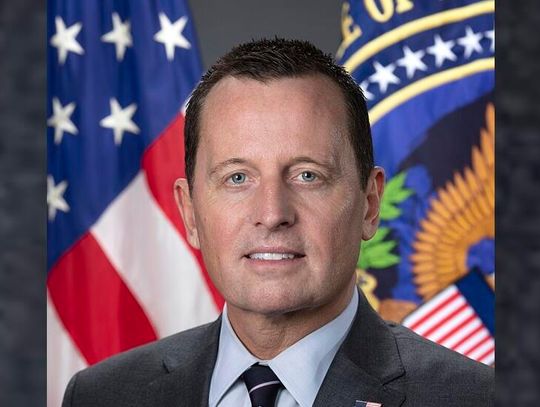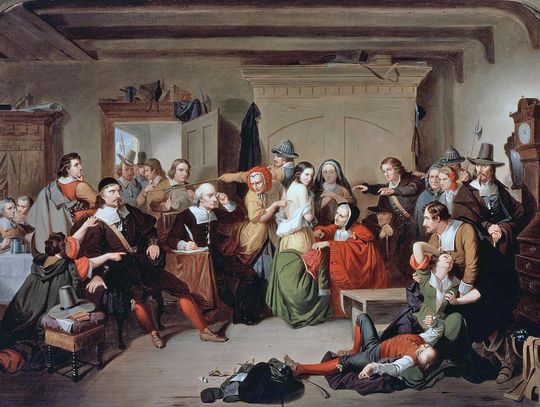2013 rok dobiegł końca i naturalną koleją rzeczy nadszedł czas, by zastanowić się nad najważniejszymi wydarzeniami minionych 12 miesięcy. Było ich wiele: świat na krawędzi wojny z powodu syryjskiej broni chemicznej, zamach bombowy podczas Maratonu Bostońskiego, rozpoczęcie realizacja postanowień ustawy o powszechnych ubezpieczeniach Affordable Health Care Act, słaba efektywność prac Kongresu, wybór papieża Franciszka, homomałżeństwa i skandal szpiegowski wokół NSA.
Które z tych wydarzeń będą miały największy wpływ na rok 2014? Komentatorzy uznają te wydarzenia za najbardziej doniosłe. Nie ma wprawdzie w tej kwestii powszechnej zgody, ale takiej być nie powinno. Tylko czas pokaże bowiem, jakiego znaczenia nabiorą te fakty w przyszłości.
Naszym zdaniem, powyższe wydarzenia wciąż będą dominować na pierwszych stronach gazet. Ponadto, niejako jako produkt uboczny tych wiadomości będziemy zmuszeni czytać o nierównościach ekonomicznych, gdzie garstka zamożnych obywateli posiada w swym ręku większość bogactwa, podczas gdy pozostali muszą ciężej pracować na część pozostałą do podziału.
Decyzja Sądu Najwyższego USA o legalizacji homomałżeństw w najbliższych latach będzie wciąż rozbrzmiewać echem w kręgach prawnych, politycznych i kulturalnych.
Sporną kwestią nie będzie akceptacja tej decyzji, lecz jej polityczna zmiana w poszczególnych stanach, biorąc pod uwagę implikacje religijne. Decyzja ta przypuszczalnie zamieni się w kwestionowanie konstytucyjnej poprawki gwarantującej naszą wolność religijną.
Nasze prawo do prywatności uzurpowała sobie NSA, czego dowodzi fakt zbierania przez tę rządową agencję telefonicznych i elektronicznych informacji obywateli bez procesu sądowego. Czy wciąż jesteśmy wolnymi ludźmi, gdy rząd sprawuje kontrolę nad tym, co mówimy i piszemy, a zebrane informacje przetrzymuje dla sobie tylko wiadomego celu?
To, co wydarzyło się w ubiegłym roku niewątpliwie będzie miało duży wpływ na rok 2014 i lata następne.
Steve H. Tokarski, wydawca
2013 News Review
With the end of the year 2013, it is natural to reflect on the most important news stories of the year. There were plenty of them to consider: the near-war with Syria over chemical weapons, the Boston Marathon bombing, the launching of the Affordable Health Care Act, the dysfunction of the U.S. Congress, the election of Pope Francis, same sex marriage, and the NSA spying revelations.
Which of these 2013 stories will have the most impact going into 2014? Commentators have been analyzing these news events as the most consequential. There is no obvious consensus and there should not be one. Only time will tell what impact these events will have in the future.
We believe that all of the above stories will continue to occupy the front pages of our newspapers. In addition, as a by-product of these stories, we will be forced with the economic issue of financial inequality where a few wealthy citizens seem to absorb all of the wealth while the rest work harder for diminishing returns.
The U.S. Supreme Court's decision on same sex marriages will reverberate across legal, political, and cultural arenas for years to come.
The issues will not be how to accept these decisions, but how to politically change them at a state-by-state basis with taking into account religious implications. This issue will then develop into a constitutional challenge to freedom of our religious liberty.
The right to privacy has been usurped by the government's NSA, as was the case with the collection of our telephone and electronic communications all without due process of law. Can we continue to be a free people if the government monitors everything that we say or write and preserves all this information forever and for no clear purpose?
What has happened in the past will continue to influence the news of 2014 and well into subsequent years.
Steve Tokarski, Publisher











